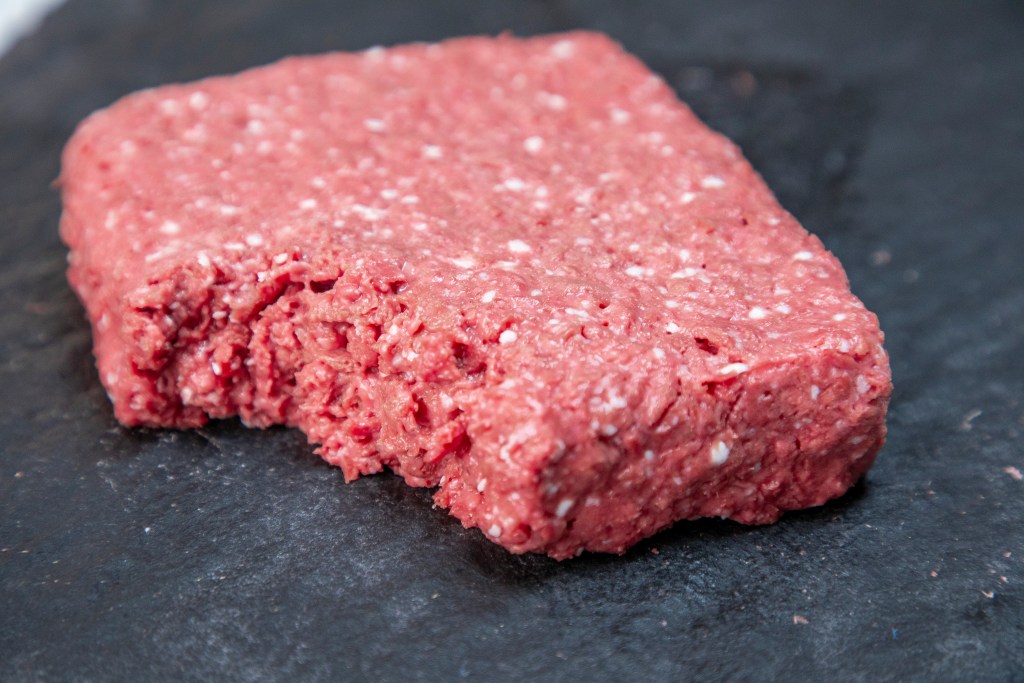
Last year, odds were you’d heard of one, maybe two plant-based meat companies — if you’d heard of them at all. But over the past twelve months, plant-based food — especially meat — has blown up big time. It’s on more grocery shelves, at more fast-food restaurants, and in more media stories than ever before. In fact, I’d say that 2019 was the year that plant-based food truly went mainstream.
Plant-based food didn’t suddenly appear out of the ether on January 1st, 2019. Impossible Foods was already serving meatless sliders at White Castle, Beyond Meat patties were already in a myriad of restaurants and retailers, and Oatly was the alt-milk darling of coffee shops everywhere.
But 2019 kicked things off with a bang when Impossible Foods was named “Best of the Best” by Engadget at CES 2019. We were there to sample Impossible’s new recipe 2.0, which it unveiled at the tech conference (yes, it was delicious). While there we also got to interview Impossible’s CEO Pat Brown, who told us that next up, the startup would be tackling steak.
Beyond Meat launched its own version 2.0 around the same time, following it up a few months later with its (very realistic) Beyond Beef. This summer the El Segundo, California-based company became the first plant-based meat company to go public. And it crushed expectations. Beyond had the highest IPO pop since the 2008 financial crisis, and its shares have continued to soar (with a few fluctuations here and there).

Plant-based meat became a lot more easily accessible this year. Impossible made its retail debut in L.A. this September, while Beyond continued to expand its retail footprint — even into Costco. Fast-food really embraced meatless meat this year; Burger King began serving Impossible Whoppers, Carl’s Jr. rolled out its Beyond Famous Star, and KFC drew huge crowds when it sold Beyond Fried Chicken for one day at a single location in Atlanta. In Canada, McDonald’s and Wendy’s experimented with plant-based burgers of their own.
Outside of meat, other plant-based products also flourished this year. Oatly continued to grow in the U.S. — so much so it had to open up two new facilities to meet demand. JUST also grew the footprint of its plant-based egg scramble, expanding into hundreds of retailers (including Costco) as well as fast-casual restaurant Le Pain Quotidien and the hot bar of Whole Foods.
2019 was also the year that Big Food began to muscle its way in on the plant-based craze. Tyson launched Raised & Rooted, a line of blended burgers and meatless “chicken” nuggets. Nestlé launched the Incredible burger in Europe (and in McDonald’s in Germany and Israel), and the Awesome burger in the U.S. through its Sweet Earth brand. Kellogg‘s and Hormel unveiled their own takes on realistic plant-based burgers and ground “beef.”

The growth of plant-based food wasn’t limited to the U.S. market. Europe saw a number of animal alternative companies hit the market and expand their reach this year. Plant-based food companies set their sites on Asia in particular, recognizing a massive market with a huge hunger for meat (and protein in general). Both Beyond and Impossible have been slowly expanding in Asia. Locally, Green Monday grew the footprint of Omnipork, a plant-based pork alternative developed specifically for Asian consumers. (We tried it, and it was quite tasty.) Most notably, it became the first major meatless meat to enter the Chinese market.
Not all was rosy for plant-based foods over the past 12 months, however. Products like Impossible Foods and Beyond Meat took a lot of heat from critics who think their products are too processed and unhealthy. Shortages from Impossible Foods and Oatly also had consumers throwing the brands some shade, though it hasn’t seemed to cool their popularity. Finally, spurred by powerful meat lobbies, over a dozen states also passed legislation restricting what terms plant-based meat could use on its labels — though as of now those laws have been overturned in Mississippi and tabled in Arkansas.
To keep up with all of the plant-based action, 2019 was also the year we started Future Food; a weekly newsletter dedicated to exploring the latest alternative protein news and trends. Subscribe if you like! 2020 is already shaping up to be an exciting one.





Leave a Reply